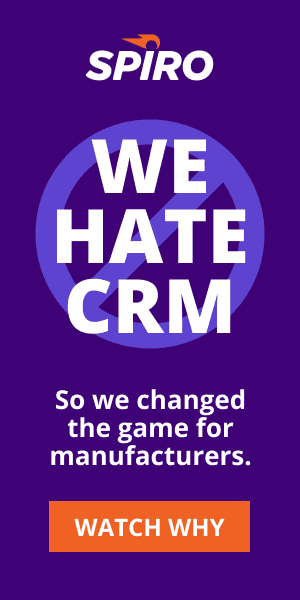Building Sales For Your Exit Strategy
It all sounds so easy. First you have an awesome idea for a product (like Spiro’s awesome sales automation CRM). You build a great team with your capable friends, all who share your vision. At some point you’ll need investment, maybe from friends or from VCs. It all sounds so simple – your product is a sure thing.
This couldn’t be further from the truth. You need a plan to show investors how you can make them their money back (and then some). Nothing excites investors more than sales success in the market, and confidence in forecasted sales projections. It’s already tough to build quality sales teams and this added pressure does not help.
Cue the all important exit strategy. Josh Veshia is no stranger to the exit strategy. He’s helped build high performance sales teams that position their companies for successful exits – namely 4 acquisitions and 3 IPOs (This was me after hearing that). This stat is amazing, because conventional wisdom says that 3 out of 4 start ups fail.
Although he is currently developing the New England enterprise territory for Software Analytics firm New Relic, Josh was kind enough to sit us down and talk us through some of the strategies he has used to make a lot of investors very happy.
One Size Fits All Selling = Recipe For Failure
In this digital age where information is king, not knowing all you possibly can about a customer is to set yourself up for failure. It’s a common thread of advice but it’s so important that it is worth repeating. You need to know your customer and how you add value, specifically to them.
Josh takes it a step further than just memorizing the company website. You should also be in the know of all their recent announcements, their industry in general and trends that have been forming. Learn as much as you can about their past projects – Who signed the deals? What happened to the successes? What about the failures?
Josh’s advice is not only tied to information, but to process. Many companies have a sales process. Repeatable methodology is important for continued success. However, as a rep, you need to appreciate that customers really don’t give a shit about your sales process.
If you want to present solutions that your prospects find valuable and that meet their requirements, ask the right questions. You’ll find that prospects will not only tell you what they want, but also how they want to be sold. Great reps take the time to understand each customer’s buying process and adapt accordingly.
Qualify And Close Stages, Not Deals
Josh brings up the fact that old school sales training traditionally teaches you to qualify your deals hard up front. You’re charming your way in and selling hard to build up to a climactic closing event. But sales isn’t truly like that – every sale has stages that indicate where you are in the process.
Dividing up your sales process into smaller more realistic and attainable goals will help you push deals forward. You can work with the customer to define a MAP (Mutual Activity Plan) which outlines the success criteria and activities for each stage.
Another benefit of the incremental approach is to keep you from talking too much about the final close (or you put yourself at risk of sounding like another one of those sales guys). If you do things right, the final close is not some climactic event – you’ve been closing stages in this deal the whole time.
Understand How To Navigate The Politics
Time to do your best Tyrion Lannister. Navigating politics at a customer is crucial for top sales reps. You need to understand the interests and motivations of all parties involved in the decision making process.
Who can say yes to your proposal? That’s obvious. More importantly, who can say no? Deals go sideways most often because of someone you haven’t met (or even considered) who steps in with authority and says “No.”
Once you figure this out, do what you can to build rapport with the appropriate decision makers and influences. Josh mentions that many reps many rely on their “champion.” If you’re spending all of your time with one contact you’re probably not going to close, which will harm your exit strategy overall.
A weak champion is someone who says “Work with only me… I’ll sell your solution internally to everyone else.” Sure, they’ll always take your call, but they’re blocking your efforts. You’re the salesperson – Don’t expect your champion to sell for you.
Learn More
Since we’re talking about start ups, why not learn how to sell your disruptive technologies? Just remember to avoid bad habits.
Photo courtesy of Phillipe Lewicki

